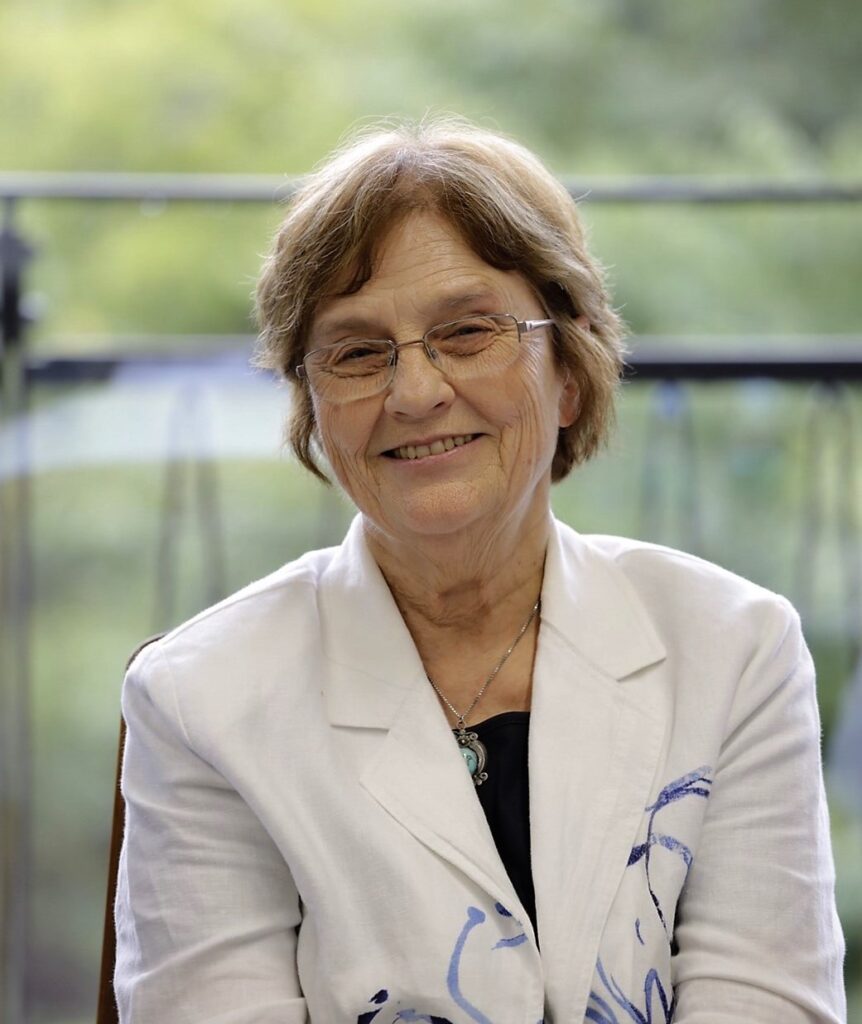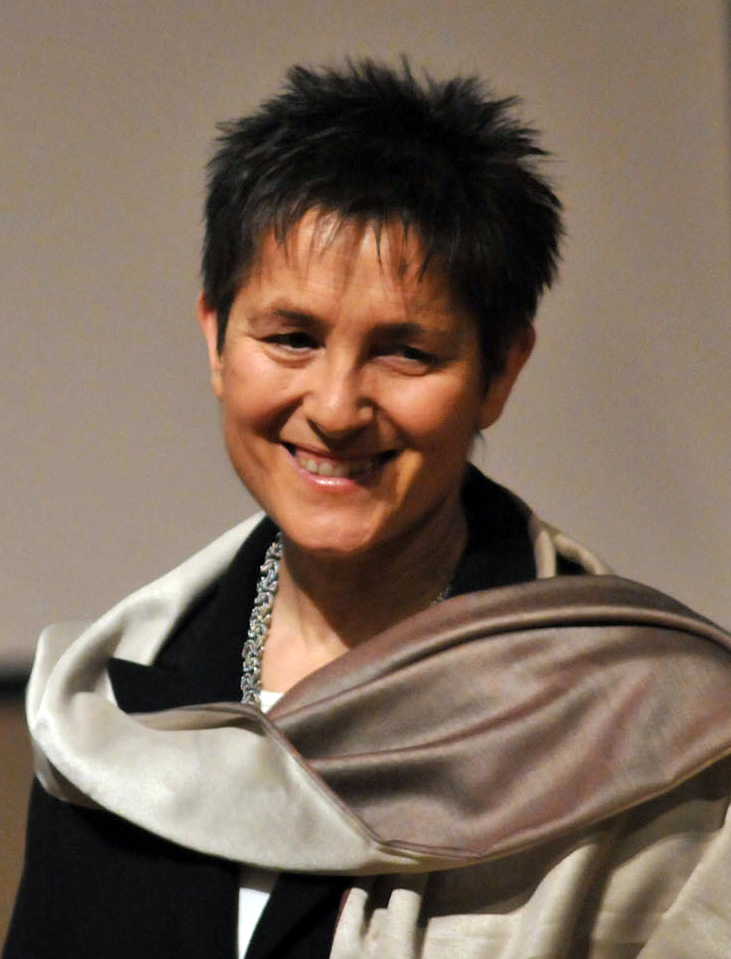Chiara Lubich, founder of the Focolare Movement, repeatedly spoke in her speeches about closeness as God’s way of being near to humanity. As reflected in the title of this book, Closeness is the style of God which, through His life, Jesus revealed to us. It is also the main way to bring God to men and women today. To gain a deeper understanding of the book’s content, we interviewed the authors: Judith Povilus and Lida Ciccarelli.
Lida, Judith, what is the book about?
Lida: “It is a collection of Chiara Lubich’s ideas on the theme of love for others from the perspective of proximity. This is a topic dear to Pope Francis, who has often urged people to take care of the world around them and to be close to our brothers and sisters in the style of God: closeness.”
Judith: “For the English edition, we wondered how to translate the title. The solution could be the answer to your question: Learning Closeness from God—learning from God how to be close, recognizing how He has drawn near to us, so that we, in turn, may be close to those around us.”

Judith Povilus, PhD in Fundamental Theology, is Emeritus Professor of Logic and Foundations of Mathematics at Sophia University Institute (Loppiano, Florence). She is the author of: The Presence of Jesus Among His Own in Today’s Theology (1977); Jesus in Our Midst in the Writings of Chiara Lubich (1981); Numbers and Light: On the Sapiential Meaning of Mathematics (2013); and co-editor of Unity: A Glimpse from Chiara Lubich’s ‘Paradise ’49’ (2021). (2021).
How can we bring God into today’s world, where there is so much loneliness, indifference, war, and division?
Lida: “If we look around us, there are reasons to be pessimistic. Yet, as Christians, we are always called to witness God’s love. For me, the way forward is the path of Jesus: society back then was no better than today’s, yet Jesus always brought the life of heaven. We must do the same, where there is no love, let us bring love; where there is loneliness, let us become companions in life; where there is division, let us be instruments of reconciliation and unity.”
Who is the ‘neighbour’ to whom we bring God?
Judith: “The encyclical Fratelli tutti recalls the Parable of the Good Samaritan, where the Scribe asks Jesus, ‘Who is my neighbour?’ Jesus turns the question around, showing that everyone is a candidate to be my neighbour. There are no limits—it is up to me to draw near to others. Being a neighbour is a transformative act. Your question is beautiful: finding God is what every human being most deeply longs for, even if they are unaware of it. Let us allow God to live in us, so that through our love, He may touch hearts.”
Cultural, social, and political differences often lead to fragmentation and polarization, increasing fear of others. Chiara Lubich’s ideal of unity challenges this trend.
Lida: “That’s absolutely true. Chiara was countercultural. She embedded in us a simple yet revolutionary idea: we are all brothers and sisters because we are all children of the Father in heaven. It is a simple idea, yet it makes us free and breaks down walls of division. If we put it into practice, it changes our lives. The other person, whether young or old, whether they share my views or not, whether rich or poor, a foreigner or someone from my own country, should be seen with new eyes. Everyone is a child of the Father and everyone, absolutely everyone, is loved by the Father just as I am.”
Lida Ciccarelli, with degrees in Philosophy and Moral Theology, is a professor of Church History and Spiritual Theology at the Mystici Corporis International Institute (Loppiano, Italy). A former member of the Spirituality Commission at the General Secretariat of the Synod, she is currently a Postulator at the Dicastery for the Causes of Saints.

Proximity is a key concept both in Christian Churches and in other religious traditions. Is it the path to universal fraternity?
Lida: “That’s exactly what we experienced recently with a group of young Shiite Muslims, students of Dr. Mohammad Ali Shomali, Director of the International Institute for Islamic Studies in Qum, Iran. They came to Sophia University, in the little town of Loppiano, for a short course on Christianity. We did not so much speak about fraternity—we lived it.”
Judith “I was responsible for several lessons on the spirituality of unity. While speaking about God as Love, I told them the Parable of the Prodigal Son. I asked: ‘Is anyone here a father? Can you understand the depth of this mercy-filled love?’ Seven of them were young fathers. During a break, they joyfully and emotionally showed me photos of their children. In this atmosphere, their spontaneous questions about spirituality allowed them to understand the charism of unity more deeply. With joy, we discovered common ground or clarified aspects of Christianity that had previously been unclear. I realized that closeness, with all its human nuances and the willingness to share in the life of others, is truly the path to sharing the gift of the charism, which is for everyone, non-Christians too. Together, we can be builders of a more fraternal world.”
What advice would you give to readers? How should they view others?
Lida: “If the reader is already familiar with Chiara’s writings, I would suggest approaching them as if for the first time. Then, pause whenever something strikes you and listen to Wisdom knocking at the door of your heart.”
Judith: “Yes, indeed, Chiara’s writings in the anthology section are profound, diverse in genre and content. They cannot be read all at once. Personally, every time I meditate on one writing or another, I discover new insights or new steps to take.”
Lida: “So, in conclusion, how should we view other people? As Jesus looked at the rich young man: ‘He looked at him and loved him.’ What must that gaze have been like? A gaze of love, freely given, that reaches deep within and says: You are important to me, I love you just as you are.”
Lorenzo Russo




I appreciate the nice methodology of marketing a book of such great value without the usual commercialism. I do hope, it will be available at a reasonable and affordable price for the developing mission nations to enable the masses participate actively in building a ‘A NEW WORLD ORDER!’
Thank you. I helped Adrian a priest to read this conversation. He was very pleased. At the end he said that an experience will help understand the message.